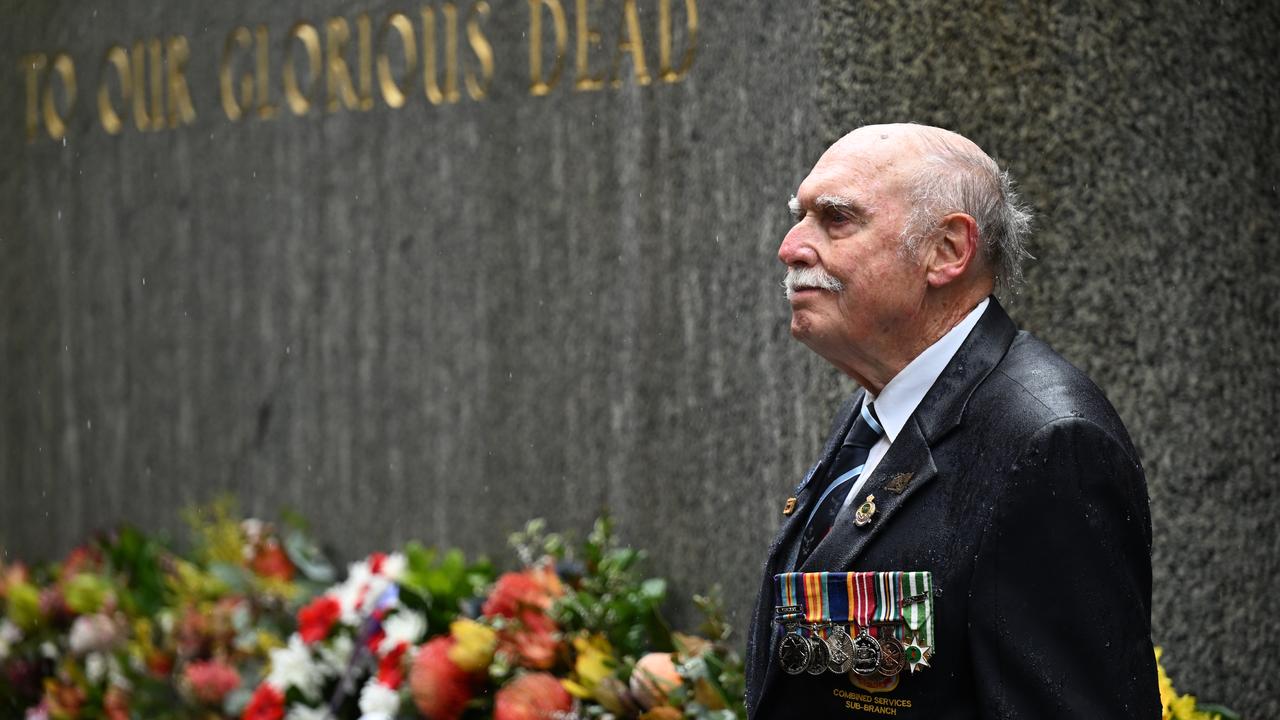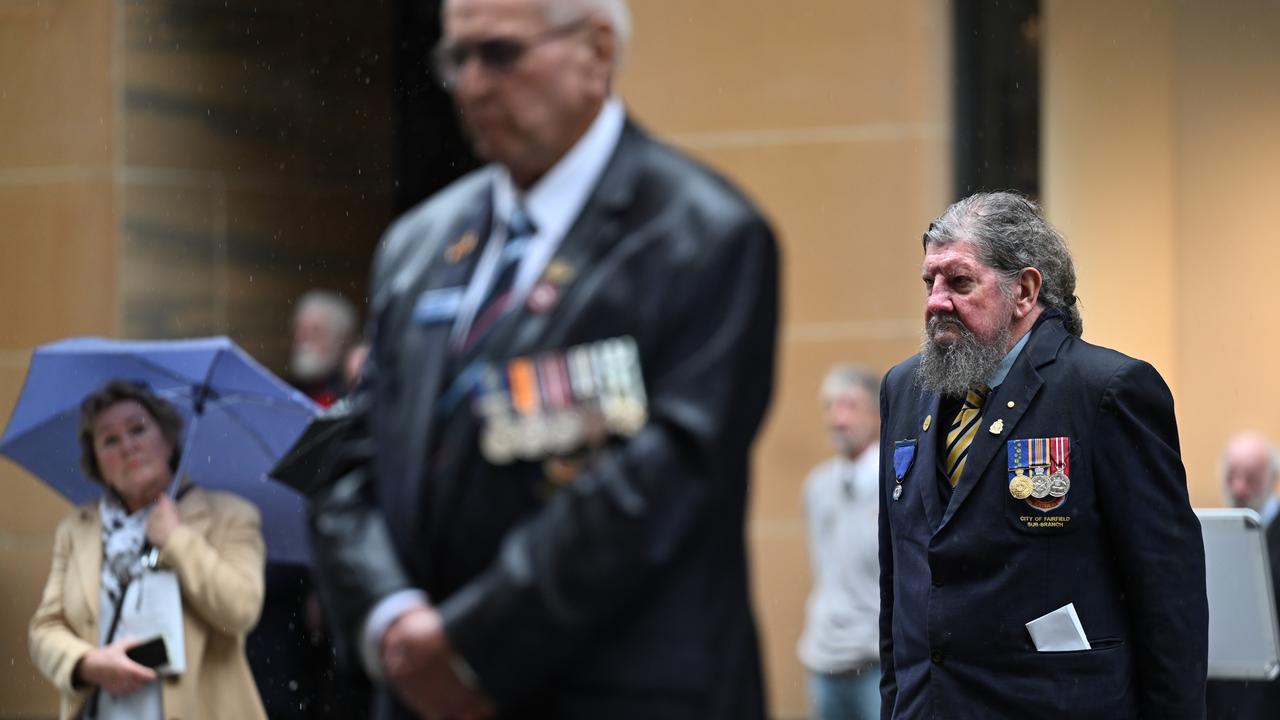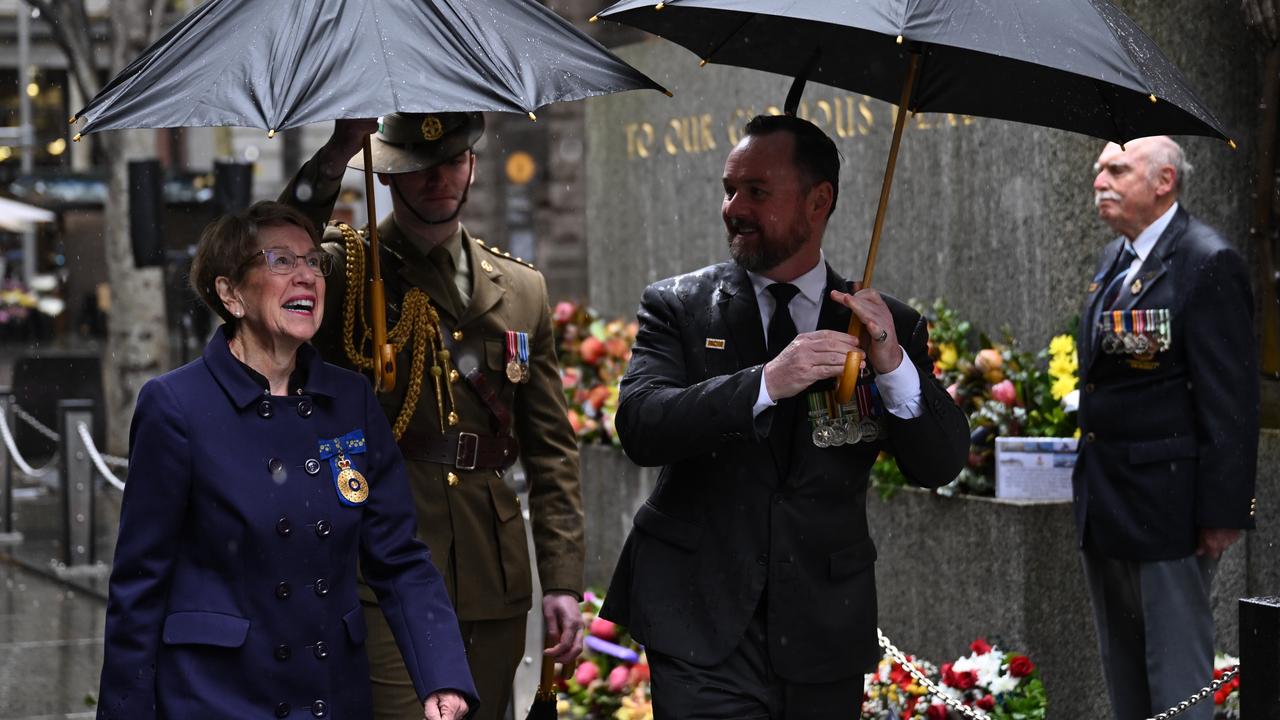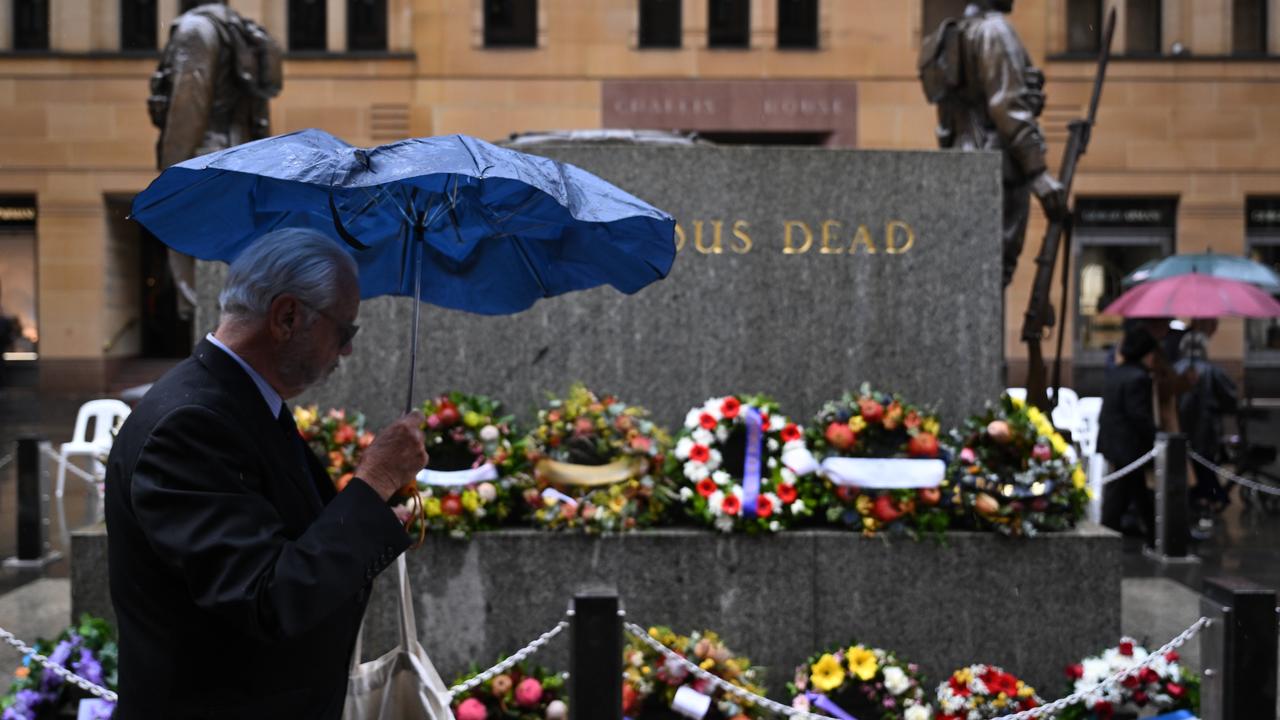
Australians who fought in Vietnam have been acknowledged at ceremonies around the nation to mark the 59th anniversary of the costliest battle of the contentious conflict.
The end of the Vietnam War, Australia's longest military engagement of the 20th century, was commemorated on Monday, the anniversary of the Battle of Long Tan in 1966.
Services throughout Australia included a major gathering of servicemen and women in Sydney's Martin Place.
But for many a different battle drags on.
Bernie Cox attended in Sydney and told AAP people had gained a greater appreciation for what veterans of the conflict faced.
"People can see the injustice of the whole thing," he said.
After being conscripted to serve in Vietnam, he faced "animosity" attending university after he returned home.
"Even some of those people now would say that was a bit unfair," he said.
Relatives of Mr Cox served in World War I and World War II.
"I just thought that's what Aussie kids did, join the army ... it's normal," he said.
He found out that wasn't necessarily the case after being conscripted.
"I got a bit of a shock, it wasn't such a great adventure in the end."

Having not always felt fully recognised, 2500 Australians excluded from receiving the Vietnam Campaign Medal continue their struggle to be acknowledged despite increasing public awareness of what veterans went through.
The Vietnam Veterans Association and the RSL are calling on the federal government to award the honour to the contingent, who were among 60,000 Australians to serve in the conflict between 1962 and 1975, but remain without acknowledgement because of a technicality.
This year marks the 50th anniversary of the end of the war.
Navy veteran Bob Braithwaite finally received his medal last week after multiple applications and rejections.
After joining up as a teenager, he served 120 days in Vietnam before having to return because of injury.
"It's very hard, very hard," Mr Braithwaite told AAP from his home in Adelaide in the lead-up to Vietnam Veterans' Day.
"You weren't recognised as a full veteran in my books ... you could say it felt like being a car with only three wheels."

Conscripted into service and sent to fight in a deeply unpopular war, the veterans awaiting recognition completed at least 60 days in-country, serving under harrowing conditions.
Because their national service obligations ended before they reached the 181-day threshold, they were sent home and denied the campaign medal - and the recognition and respect many of their comrades received.
Made to feel like they had not done enough, some were labelled "short-timers" and have since carried the burden.
Mr Braithwaite takes medication for PTSD and undergoes a twice-yearly psychological check-up.
"You'd go to a hotel on Anzac Day to have lunch and celebrate with your wife and a couple of close friends and the guys with the full medals would kind of look at you a bit funny, and you'd think, 'oh, OK, I haven't finished the process to become a full veteran'.
"But the stigma has slowly worn off ... and we seem - the older we get, the fewer we get - to get more appreciation for what we've done."

Christopher Anderson said some of his fellow veterans felt more closely aligned with Vietnam Veterans Day than other memorial days such as Anzac Day.
"It is still an experience that is close to the hearts of those who participated," he said.
"Many of us lost good friends."
The broader community and RSL failed to treat veterans well or welcome Vietnam vets when they returned.
Then-RSL NSW president Ray James, a veteran of the Vietnam War, was among those to deliver a formal apology on Vietnam Veterans Day in 2023.
Some 3000 Australians were wounded throughout the conflict and 524 died during or as a result of their service in Vietnam.
Lifeline 13 11 14
Open Arms 1800 011 046







